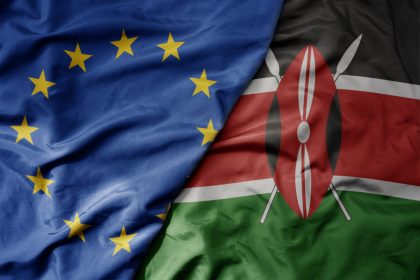
On July 1, 2024, the new Trade Agreement between the European Union and Kenya came into force. The primary objective of this Agreement is to support the African state’s integration into the global economy through trade liberalization, promoting sustainable development, and contributing to the eradication of poverty.
The Agreement has been significantly driven by the Spanish Presidency of the EU Council, which prioritized advancing negotiations with Kenya. This follows the objectives set by the “Horizon Africa” strategy, launched in 2020, aimed at increasing the presence of Spanish companies and promoting Spanish investment in Africa through institutional and financial support.
Although Kenya has been part of the Trade Agreement signed between the EU and the East African Community since 2014, this new bilateral agreement aims to further liberalize trade and investment in Kenya. It is expected to contribute to its economic growth, sustainable development, and gradual integration by fostering structural transformation of its economy and improving its trade and regional policies, which will boost public and private investment in the region.
In summary, we consider it relevant to outline the benefits and main innovations included in this Agreement regarding customs matters:
- Customs duties on imports into the EU of products originating from Kenya, such as agricultural products and coffee, are completely eliminated, except for arms.
- Customs duties on imports into Kenya of certain products originating from the EU, such as butter, gasoline, diesel, cork, paper, engines, textile machinery, tires, special vehicles, railway materials, etc., are completely eliminated.
- A progressive tariff reduction on imports into Kenya of certain products originating from the EU (agricultural products, wines and spirits, cheeses, sugar, paper, textile materials, raw gold, etc.) is established through a phased reduction system, to be fully eliminated within a maximum period of 25 years from the date of entry into force of the Agreement.
- Preferential tariff treatment is granted to products originating from the Parties, establishing as valid proofs of origin the EUR-1 certificate and/or the exporter´s invoice declaration, requiring that the goods be transported directly between these countries to benefit from preferential treatment.
- A period of 5 years is established for the Agreement Council to adopt the Protocol regulating specific rules of origin for the EU-Kenya. Until the expiration of this period, the rules of origin included in the Agreement signed between the EU and the East African Community will apply.
- A prohibition of quantitative restrictions is established for both parties, prohibiting the application of import and/or export bans or restrictions between them, beyond tariffs and other charges and licenses that must be imposed due to the nature of the goods.
- National treatment is established for goods originating from both parties, prohibiting the imposition of internal taxes or other charges on imported products to protect domestic production, and requiring equally favorable treatment to that granted to similar domestic products.
- The importance of customs cooperation is recognized, and a transition period is provided for Kenya to harmonize its customs legislation and procedures, as well as support for its customs administrations to implement the Agreement.
- Administrative assistance is guaranteed to allow the modernization of Kenyan customs systems and procedures with the aim of speeding up customs clearances.
- It is agreed that customs legislation and procedures will be based on the WCO regulatory framework and the HS Convention, specifically including:
- The use of a SAD, or its electronic equivalent, for customs declarations in the EU and Kenya;
- Simplified procedures for the entry and release of goods;
- Development of IT systems for information exchange between operators, customs agents, and customs authorities in export and transit operations;
- The application of BTIs system for tariff classification and rules of origin.
- The transit of goods between the territories of both parties is facilitated without the need to pay customs duties, prohibiting the imposition of discriminatory and/or disproportionate restrictions or controls.
- Greater transparency and publicity of customs and trade issues are ensured, as well as the implementation of customs procedures that can be easily adopted by businesses.
- A Special Committee on Customs and Trade Facilitation is created to provide a forum for consultation and discussion on matters related to rules of origin, customs valuation, tariff classification, transit of goods, etc.
- The harmonization of sanitary and phytosanitary measures in accordance with international and WTO requirements is promoted to ensure Kenya’s integration into global trade.
How can we assist you?
We recommend trade companies to conduct a study of their trade relations with Kenya to take advantage of the benefits provided by this Trade Agreement.
Salinas & Partners with over 30 years of experience in international trade and customs, are at your entire disposal for any questions or comments that may arise.



